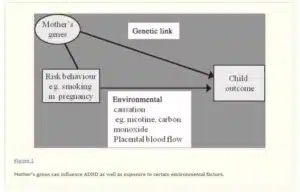How does Hyperbaric Oxygen Enhances Cognitive Function in Alzheimer’s and Mild Cognitive Impairment? It has been reported that environmental factors such as hypoxia could contribute to the pathogenesis of Alzheimer’s disease (AD). Therapeutics like hyperbaric oxygen treatment, which improves tissue oxygen supply and ameliorates hypoxic conditions in the brain, may be an alternative therapy for AD and amnestic mild cognitive impairment (aMCI). The present work aims to investigate the potential therapeutic effect of hyperbaric oxygen treatment for AD and aMCI.
This article explores How Hyperbaric Oxygen Enhances Cognitive Function treatment for Alzheimer’s disease (AD) and amnestic mild cognitive impairment (aMCI). The study involved 42 AD patients, 11 aMCI patients, and 30 control AD patients. The AD and aMCI patients received 40 minutes of hyperbaric oxygen treatment once a day for 20 days and were assessed using various neuropsychiatric assessments before and at 1-, 3-, and 6-month follow-ups after treatment.
The key findings of the study are as follows:
-
- Cognitive Improvement: One course of hyperbaric oxygen treatment significantly improved cognitive function in AD patients after 1-month follow-up, as assessed by the Mini-Mental State Examination (MMSE) and Montreal Cognitive Assessment (MoCA). aMCI patients also showed improvements in MMSE and MoCA scores, with sustained benefits observed up to 3 months.
-
- Activities of Daily Living (ADL): ADL scores significantly improved in AD patients after 1- and 3-month follow-up, suggesting enhanced daily living abilities.
-
- Comparison with Control: Compared to control AD patients who did not receive hyperbaric oxygen treatment, the treated AD patients demonstrated significant cognitive improvement after 1-month follow-up.
-
- Brain Glucose Metabolism: Some AD and aMCI patients exhibited improved brain glucose metabolism after hyperbaric oxygen treatment, as observed through fluorodeoxyglucose positron emission tomography (FDG-P) imaging.
The study suggests that hyperbaric oxygen treatment may offer a promising alternative therapy for AD and aMCI by temporarily improving cognitive function and daily living abilities. It also hints at potential preventive benefits for aMCI patients, possibly delaying the progression to AD. Safety concerns related to hyperbaric oxygen treatment were minimal in this study.
However, it’s important to note that the cognitive improvements observed were temporary, with benefits diminishing over time. Further research, including studies with larger sample sizes and longer follow-up periods, will be needed to fully understand the potential and limitations of hyperbaric oxygen treatment in the context of AD and aMCI therapy.
Methods: We recruited 42 AD, 11 aMCI, and 30 control AD patients in this study. AD and aMCI patients were treated with 40 minutes of hyperbaric oxygen once a day for 20 days and assessed by neuropsychiatric assessments including Mini-Mental State Examination (MMSE), Montreal Cognitive Assessment (MoCA), and Activities of Daily Living (ADL) scale before and at 1-, 3-, and 6-month follow-up after treatment. Control AD patients who were not given hyperbaric oxygen treatment had similar clinical profile as hyperbaric oxygen treated AD. We examined 10 of the AD/aMCI patients with fluorodeoxyglucose positron emission tomography.
Results: In self-comparison study, one course of hyperbaric oxygen treatment significantly improved the cognitive function assessed by MMSE and MoCA in AD patients after 1-month follow-up; such treatment also significantly improved MMSE score at 3-month follow-up and MoCA score at 1- and 3-month follow-up in aMCI patients. The ADL scale was significantly improved in AD patients after 1- and 3-month followup. Compared to the control AD patients, the MMSE and MoCA in hyperbaric oxygen treated AD patients were significantly improved after 1-month follow-up. Hyperbaric oxygen treatment also ameliorated the reduced brain glucose metabolism in some of the AD and aMCI patients.
Conclusion for How Hyperbaric Oxygen Enhances Cognitive Function
Hyperbaric oxygen therapy (HBOT) has shown promise in enhancing cognitive function for individuals with Alzheimer’s disease (AD) and mild cognitive impairment (MCI). Research suggests that oxygen under increased atmospheric pressure can boost brain oxygenation, potentially alleviating cognitive decline. HBOT’s ability to improve blood flow, reduce inflammation, and promote neurogenesis may be key in mitigating AD and MCI symptoms. Although more studies are needed to fully understand its efficacy, HBOT represents a non-invasive and innovative avenue for addressing cognitive challenges associated with these conditions, offering hope for improved quality of life and cognitive outcomes in affected individuals.doe




